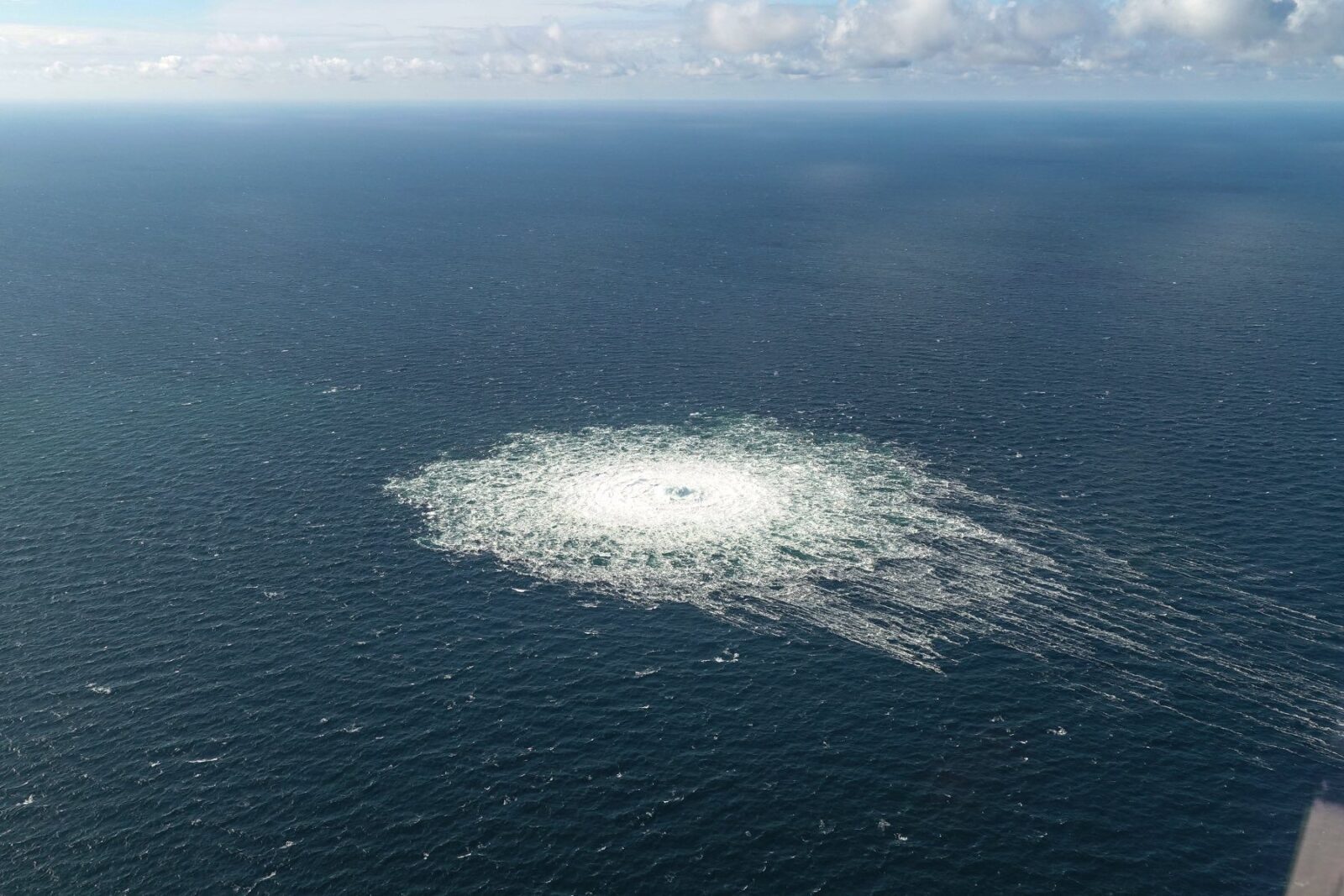(With information from AFP / RFI)
A fourth leak has been detected in the Nord Stream pipelines connecting Russia and Germany through the Baltic Sea. In a statement released on Thursday (29), the North Atlantic Treaty Organization (NATO) denounced that the leaks in pipelines 1 and 2 appear to be the result of “deliberate and irresponsible acts of sabotage. Sweden has opened an investigation for “sabotage with aggravation.” “There are two leaks on the Swedish side and two leaks on the Danish side,” a Swedish Coast Guard source told AFP news agency. The fourth leak was located northeast of the Danish island of Bornholm, above the Nord Stream 2 pipeline.
So far, authorities in the two Scandinavian countries had mentioned three leaks, two in Denmark and one in Sweden. Detected after two alleged explosions on Monday (26), the leaks occur in international waters near the island of Bornholm, but within the exclusive economic zones of the two countries. The new opening was identified on Tuesday (27), but the Swedish Coast Guard did not immediately explain why the announcement was delayed. The two leaks on the Swedish side are in the same sector, at a distance of one nautical mile (1.8 km).
The leak on the Danish side is 2.6 miles (4.6 km) away. The gas leak is causing meter-long bubbles on the sea surface that make immediate inspection of the pipes impossible, according to authorities. A Swedish Coast Guard ship specializing in decontamination is in the area with a remotely controlled underwater vehicle. Danish vessels have also been sent to the area. “According to the crew, the visible gas flow on the surface remains constant,” Swedish authorities said.
Experts estimate that it may take at least three weeks before it is possible to carry out a survey operation on the equipment without major risks. As for the time frame for repairing the pipes and getting the pipelines back to normal, this is counted in years.
The two pipelines were not in operation due to the war in Ukraine, but were filled with gas for technical reasons. Suspecting alleged sabotage of the pipelines, Russia countered on Wednesday (28) and accused the United States, which in turn denounces a “disinformation” operation.
NATO promises “united and decisive response”
On Thursday, NATO declared that “any deliberate attack” against the critical infrastructure of allied countries “would face a united and decisive response.” “We support the ongoing investigations to determine the source of the damage,” the Western military alliance pointed out in its statement.
The leaks come at a time when European countries accuse Russia of using its huge energy reserves as a weapon to put pressure on Europe, either by cutting exports to the bloc or by driving up gas prices on the international market. By selling gas at a higher price, Russia fuels its war machine and eases the domestic economic crisis triggered by Western sanctions against the country. But Russia denies responsibility for the explosions, as does the United States. The UN Security Council will meet this Friday (30) to discuss the matter.
Russia speaks of “international terrorism”
On Wednesday, Russia opened an investigation into the case for an “act of international terrorism.” The Russian government reported that it suspects “the involvement” of a foreign state in the incidents, without mentioning a particular country.
“It is very difficult to imagine that such a terrorist act could happen without the participation of a state,” Kremlin spokesman Dmitri Peskov told the press today. He again called for “an urgent investigation.”
Asked about the possibility of conducting an international investigation with the participation of other countries, the spokesman said that “many questions are raised” due to the “lack of communication and the reluctance of many countries to contact” Russia as a result of the offensive in Ukraine.
